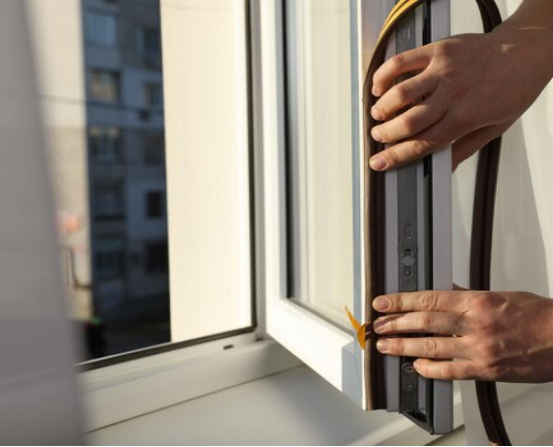




UPVC Full Form - Meaning, Uses & Benefits Explained
UPVC full form is Unplasticised Polyvinyl Chloride. It is a durable, rigid, and weather-resistant material used in windows, doors, plumbing, and construction. Unlike PVC, it does not contain plasticisers, making it stronger and more stable.
Here, you will learn what UPVC is, its key benefits, and why it’s a preferred choice over wood and metal. With minimal maintenance and eco-friendly properties, UPVC is widely used in homes and commercial spaces. Let’s explore its significance in various industries.
Why Choose UPVC?
UPVC is widely used in construction due to its unique properties:
Durability: Resistant to weather changes, moisture, and UV rays.
Low Maintenance: Does not require painting or frequent repairs.
Corrosion-Resistant: Ideal for plumbing as it does not rust or corrode.
Fire-Resistant: Does not catch fire easily, making it safe for buildings.
Thermal & Sound Insulation: Helps reduce noise and improves energy efficiency.
Eco-Friendly: 100% recyclable, reducing environmental impact.
Daily Life Uses of UPVC
1. Windows and Doors
UPVC is the preferred material for modern windows and doors due to its thermal insulation, security, and weather resistance. It keeps homes warm in winter and cool in summer.

2. Plumbing & Drainage Systems
UPVC pipes are widely used in water supply, sewage systems, and underground drainage due to their non-corrosive and leak-proof nature.
3. Electrical Conduits
UPVC conduits protect electrical wiring in homes and commercial buildings from heat and moisture.
4. Cladding & Roofing
Used in wall cladding and roofing to enhance aesthetics and provide protection against extreme weather.
5. Medical Applications
UPVC is used in medical-grade tubing, blood bags, and other sterile equipment due to its non-toxic and chemical-resistant nature.
Advantages of UPVC Over Other Materials
Disadvantages of UPVC (Unplasticised Polyvinyl Chloride)
Limited Colour Options: UPVC is mainly available in white or neutral shades, with fewer customisation options compared to wood or aluminium.
Slight Thermal Expansion: Under extreme heat, UPVC can expand slightly, which may require adjustments in installation for windows and doors.
Less Aesthetic Appeal: Unlike wood, UPVC lacks a natural or premium finish, making it less visually appealing for some architectural styles.
Not Suitable for Heavy Loads: While strong, UPVC cannot support heavy structural loads, limiting its use in large-scale construction.
Difficult to Repair: In case of damage, UPVC components usually need replacement rather than repair, increasing maintenance costs over time.
Environmental Impact of UPVC
Recyclable Material: Can be reused, reducing plastic waste.
Energy Efficient: Helps save power by improving insulation.
Sustainable Alternative: Reduces the need for wooden materials, protecting forests.
Final Thoughts on UPVC
UPVC is a strong, long-lasting, and eco-friendly material that is revolutionising construction, plumbing, and home design. Its low maintenance, energy efficiency, and affordability make it an ideal choice for modern buildings. With widespread applications in homes, industries, and medical fields, UPVC is one of the best alternatives to traditional materials like wood and metal.
FAQs on UPVC Full Form: Unplasticised Polyvinyl Chloride
1. What is the full form of UPVC?
UPVC stands for Unplasticised Polyvinyl Chloride.
2. How is UPVC different from PVC?
Unlike PVC, UPVC does not contain plasticisers, making it rigid and more durable.
3. Why is UPVC used in windows and doors?
UPVC provides better insulation, security, and weather resistance than wood or aluminium.
4. Is UPVC safe for plumbing?
Yes, UPVC pipes are non-toxic, corrosion-resistant, and leak-proof, making them ideal for plumbing.
5. How long does UPVC last?
UPVC can last 30-50 years with minimal maintenance.
6. Is UPVC eco-friendly?
Yes, UPVC is recyclable and does not contribute to deforestation.
7. Can UPVC be painted?
While UPVC does not need painting, special UPVC paints can be used for customisation.
8. Does UPVC expand in heat?
UPVC can expand slightly under extreme heat, but high-quality UPVC products are heat-resistant.
9. Is UPVC waterproof?
Yes, UPVC is completely waterproof, making it ideal for doors, windows, and pipes.
10. What are the disadvantages of UPVC?
Limited colour choices and slight expansion in high temperatures are the only downsides.























